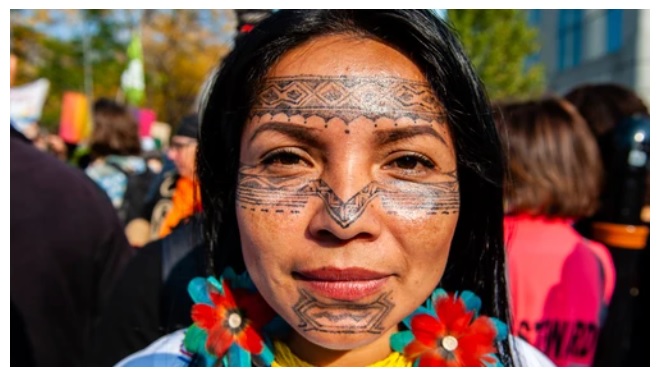October 12 will see the 530-year commemoration of indigenous defense for terrority, way of life, cultures and languages against colonialism.
But the day sparks very different emotions across the globe.
Pedro Uc Be – representative of Maya Múuch’ Xíinbal Territory, and prominent indigenous activist, writer and poet – has disputed the very idea that colonialism is now a historic entity that has been fully resisted.
“For us, it’s not a historical day, for us it’s not history, it’s continually lived experience. Colonialism has not ended, the conquest has not ended, dispossession has not ended, the death of our culture, or rather the massacre of our culture has not ended,” declares Uc Be.
Having devoted his entire life to the daily struggles for Mayan rights in the Yucatan province, Uc Be argues that symbolism inherent to October 12 only helps to enhance the problematic notion that colonialism is a period of the past. Uc Be is vociferous in explaining the more subtle and insidious ways in which colonialism is ongoing, but also reverts to more obvious, all-encompassing examples to explain his perspective, most palpable among them the recent proliferation of megaprojects.
“Today we have these mega-projects, we have this train that they’ve even defrauded us with by giving it the name ‘Maya’, so October 12 for us is an experience. Actually, we can say in this way, every single day is October 12 for the Mayan culture, and its survivors.”
The hugely controversial Tren Maya (Mayan Train) project was launched by current Mexican president, Andres Manuel Lopez Obrador, in 2018. Idolized for its proposed benefits to the local economy and transportation systems through tourism opportunities, the USD$7.4-to-$25.3 billion project has met stern opposition.
There were question marks surrounding the integrity of the related referendum result in 2019. The Mexican delegate for U.N. High Commissioner for Human Rights (OHCHR) citing that the campaign “had not complied with all international standards on human rights”. Minimal negative impact disclosure and overemphasized financial benefits tainted the pro Maya train campaign. With critics further indicating that if the project were to go-ahead it would only detriment the local environment, Maya land ownership and subsequent usage, ultimately benefiting foreign investors.
The favoring of corporate action is seemingly at odds with the recent political rhetoric that promotes pre-colonial cultures. Only last year did President Obrador apologize to Yaqui and Mayan indigenous people for previous state crimes committed against them.
“It’s a colonization that I find even worse because it’s coming from our own government, it’s our own government that’s spearheading it, right now they are subjugating indigenous people by any means,” says Uc Be, on how colonial forces are as present and as strong as ever.
While Uc Be provides a stark reality on Indigenous resistance, October 12 is still considered an important day for many.
Symbolizing an act of taking sovereignty over a day that, to many, reflects colonial atrocities and violations of indigenous communities. The date of which is non-coincidently shared with “Columbus Day” or “Discovery Day” – both U.S. and Spain national holidays, respectively.
As global audiences were becoming increasingly sensitized to trauma of colonial histories, a need to modernize values became apparent. October 12 evolved into the now widely celebrated Día de la Raza – or Day of the Pluricultural Nation – shifting celebratory focus towards social aspects, such as cultural diversity and inclusion, rather than the idea that nations were discovered.
However, still found to be too synonymous with Columbus Day, in 2002 Venezuelan indigenous communities opted for a starker naming – Indigenous Resistance Day. Honoring historic and current heroes that typified anti-Colonial resistance, amongst an expressive representation of indigenous culture and identity.
Symbolic acts, such as this, have resonated with people across the globe. The toppling of the 150-year Columbus statue in Mexico City – which now has plans to be replaced with a replica of the indigenous relic Young Woman of Amajac – was highly celebrated in 2020. Motivating energy for similar acts across the rest of Mexico.
How acts of symbolism – or in this case the meaning of October 12 – will continue to evolve remains to be seen. Already there are Latin American countries, such as Panama and Peru, that choose not to celebrate anything on October 12.
Ultimately, activists such as Uc Be argue that indigenous resistance remains an ongoing struggle regardless of symbolic acts, and that the challenge remains certain and clear: bridging the gap between illusory pro-indigenous rhetoric and a fundamental rethink of the status quo, one which finally offers indigenous communities and their representatives a real place at the table.
For Times Media Mexico, Raymond Kitchen in Campeche


